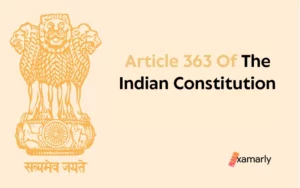Ala ud din Sikandar Shah I was a ruler of the Tughlaq dynasty in India. He ruled from 1394 to 1413 and was the son of Muhammad bin Tughlaq, who was a previous ruler of the Tughlaq dynasty.
The Tughlaq dynasty was a Muslim dynasty that ruled over the Delhi Sultanate Dynasty in India from 1320 to 1413. The dynasty was founded by Ghiyath al-Din Tughlaq, who was a former slave and military general of the Mongol empire.
In this article, we’ll learn more about Ala ud din Sikandar Shah 1 of the Tughlaq Dynasty.
The Tughlaq Dynasty in India
The Tughlaq dynasty was known for its territorial expansion, military conquests, and cultural achievements. During their rule, the Tughlaqs brought much of India under their control, including parts of modern-day Pakistan, India, and Bangladesh.
However, the Tughlaq dynasty was also marked by political instability, frequent changes of leadership, and internal power struggles. The dynasty was also plagued by economic problems, including rampant corruption, high taxes, and frequent famines.
Despite these challenges, the Tughlaq dynasty made important contributions to Indian history, including the establishment of a central administrative system, the construction of several monumental structures, and the promotion of cultural and artistic pursuits.
Today, the legacy of the Tughlaq dynasty is remembered and studied for its impact on the history and culture of India, and for the lessons it offers about the challenges of maintaining stability and prosperity in a complex and diverse empire.
About Ala ud din Sikandar Shah I
Ala ud din Sikandar Shah I is known for his military conquests and expansion of the Tughlaq empire. He successfully campaigned against the Hindu states of southern India, including the kingdoms of Vijayanagara and the Bahmani Sultanate.
He was also known for his religious tolerance and for promoting a syncretic culture in his empire, where different religions were allowed to coexist and flourish. He is remembered for his support of Indian classical music and for patronizing many poets and artists of the time.
However, despite his military and cultural achievements, the rule of Ala ud din Sikandar Shah I was also marked by political instability, economic decline, and several revolts against his rule. He is widely considered to be the last effective ruler of the Tughlaq dynasty, which gradually declined after his death.
Overall, the rule of Ala ud din Sikandar Shah I was an important period in Indian history, marked by both military conquests and cultural achievements, and his legacy continues to be remembered and studied today.
Delhi Sultanate was ruled by the Muslim Tughlaq dynasty, which had Turkic roots. When Ghazi Malik, also known as Ghiyath-al-Din Tughlaq/Ghiyas-ud-din Tughlaq, ascended to the throne in Delhi in 1320, the rule officially began. In the year 1414 AD, the dynasty came to an end.
Key Points about Ala ud din Sikandar Shah I
Here are some key points about Ala ud din Sikandar Shah I of the Tughlaq dynasty:
- Ruler of the Tughlaq dynasty: Ala ud din Sikandar Shah I ruled the Tughlaq dynasty in India from 1394 to 1413. He was the son of Muhammad bin Tughlaq, who was a previous ruler of the Tughlaq dynasty. He is the 7th ruler of the Tughlaq dynasty and the 23rd Sultan of the Delhi Sultanate.
- Military conquests: He was known for his military conquests and expansion of the Tughlaq empire. He successfully campaigned against the Hindu states of southern India, including the kingdoms of Vijayanagara and the Bahmani Sultanate.
- Religious tolerance: He is remembered for his religious tolerance and for promoting a syncretic culture in his empire, where different religions were allowed to coexist and flourish.
- Support of classical music and arts: Ala ud din Sikandar Shah I was a patron of Indian classical music and supported many poets and artists of the time.
- Political instability and economic decline: Despite his military and cultural achievements, his rule was marked by political instability, economic decline, and several revolts against his rule.
- Last effective ruler of the Tughlaq dynasty: Ala ud din Sikandar Shah I is widely considered to be the last effective ruler of the Tughlaq dynasty, which gradually declined after his death.
- Legacy: His rule was an important period in Indian history, marked by both military conquests and cultural achievements, and his legacy continues to be remembered and studied today.
- Other name: He was also known as Humayun Khan.
- Succession: On 1394 C.E., he succeeded the imperial throne as he was the legitimate successor.
- Death: He died of natural causes in 1413, after a rule of nearly 20 years.
- Aftermath: He was succeeded by Nasir-ud-din Mahmud Shah Tughlaq, his younger brother.
- Discovery: Of this short-lived reign, only billon and copper coins have been discovered.
Summary
During his rule, Ala ud din Sikandar Shah I expanded the Tughlaq empire through successful military campaigns against the Hindu states of southern India. He is also remembered for his religious tolerance and promotion of a syncretic culture, as well as his support of Indian classical music and the arts.
FAQs on Ala-ud-din Sikandar Shah I
Who was Ala-ud-din Sikandar Shah I?
Ala-ud-din Sikandar Shah I was a ruler of the Tughlaq dynasty in India, who ruled from 1394 to 1413.
What were the achievements of Ala-ud-din Sikandar Shah I?
Ala-ud-din Sikandar Shah I was known for his military conquests and expansion of the Tughlaq empire, as well as his religious tolerance and support of Indian classical music and the arts.
What was the significance of the rule of Ala-ud-din Sikandar Shah I?
The rule of Ala-ud-din Sikandar Shah I was an important period in Indian history, marked by both military conquests and cultural achievements. He is widely considered to be the last effective ruler of the Tughlaq dynasty.
Was Ala-ud-din Sikandar Shah I a successful ruler?
While Ala-ud-din Sikandar Shah I had many achievements, his rule was also marked by political instability, economic decline, and several revolts against his rule.
What was the legacy of Ala-ud-din Sikandar Shah I?
The legacy of Ala-ud-din Sikandar Shah I continues to be remembered and studied for his impact on Indian history and culture, including his military conquests, religious tolerance, and support of the arts.






